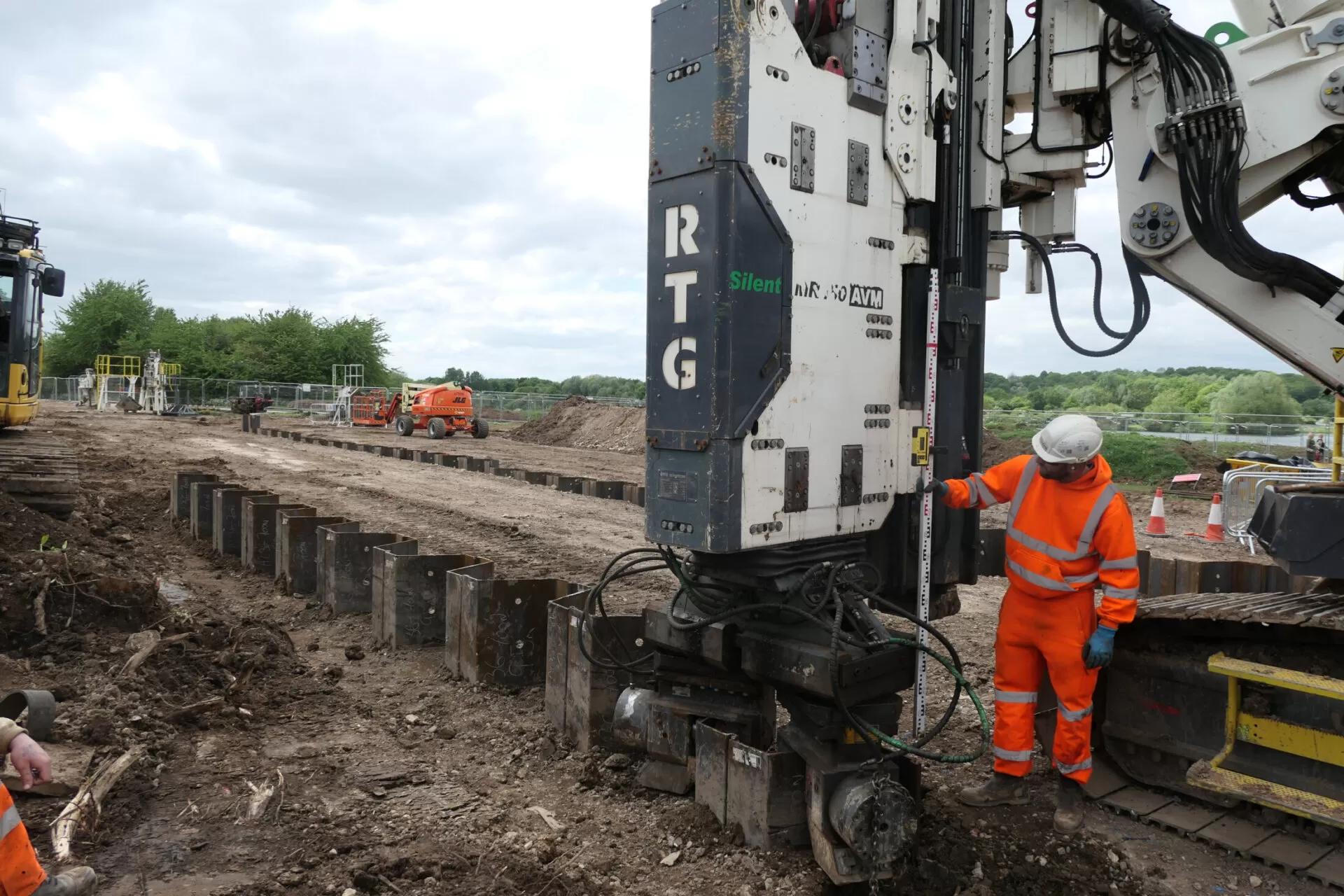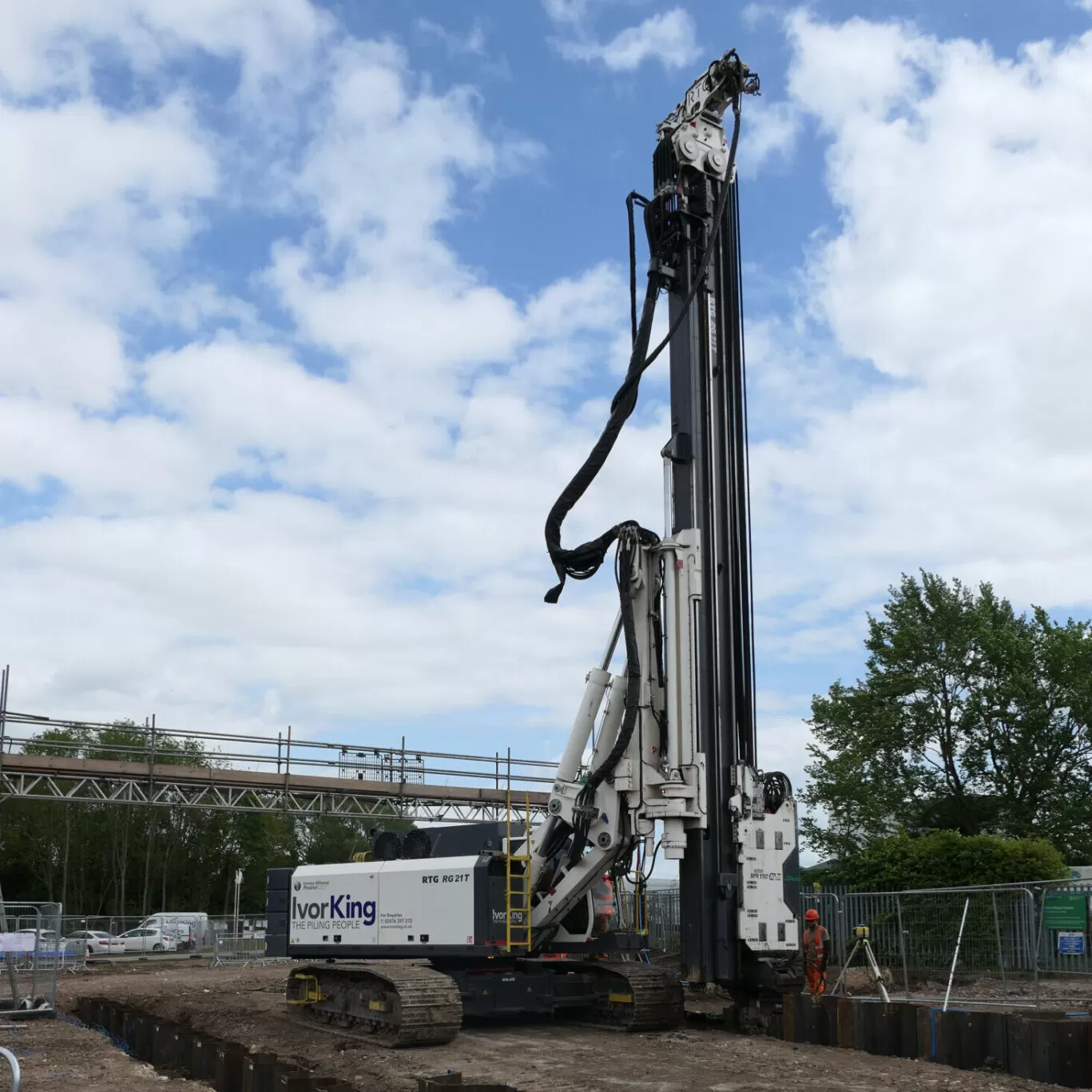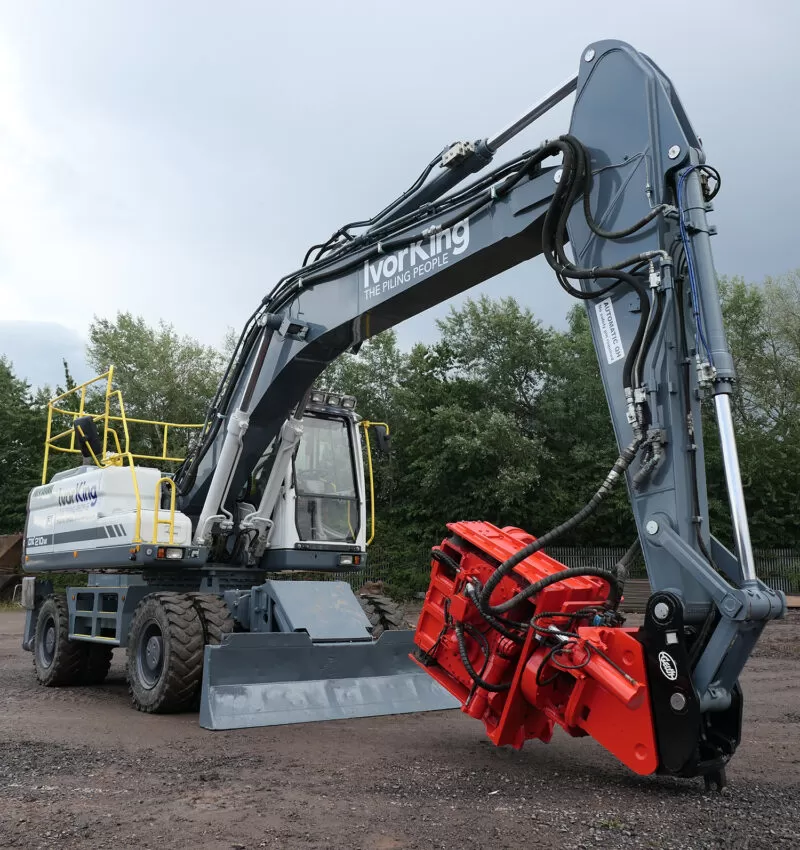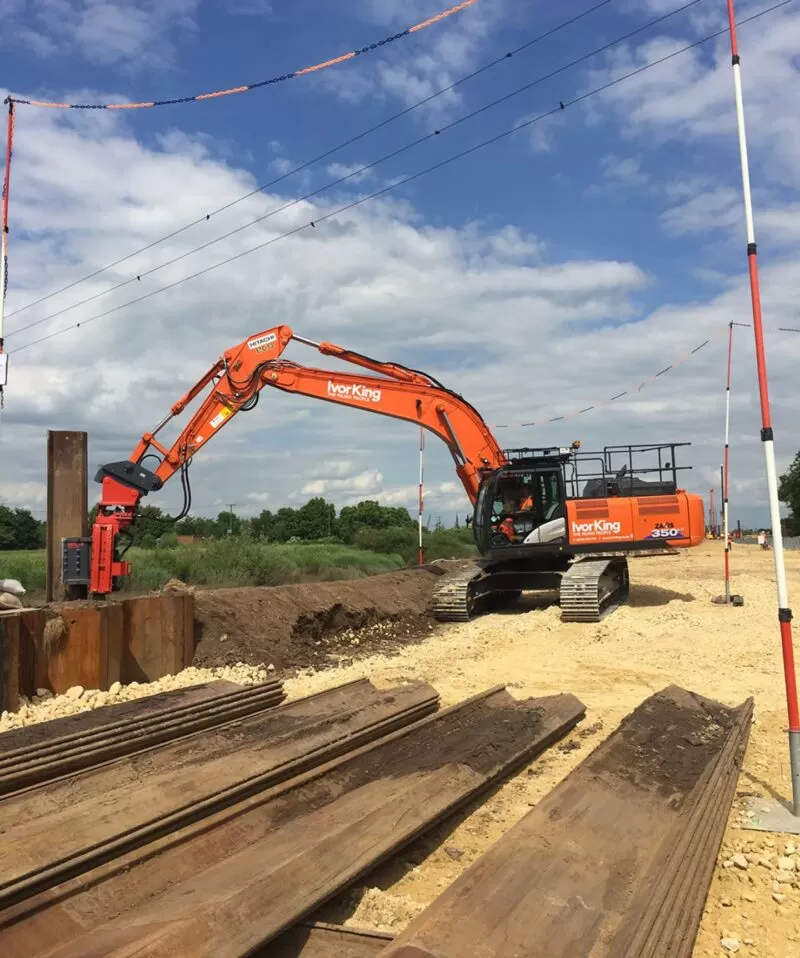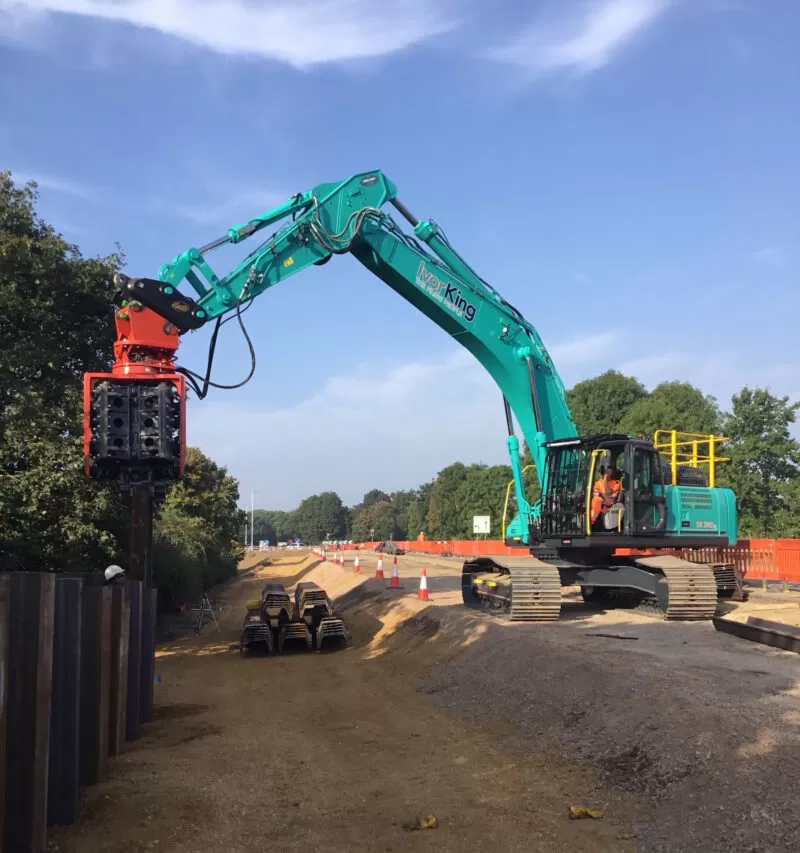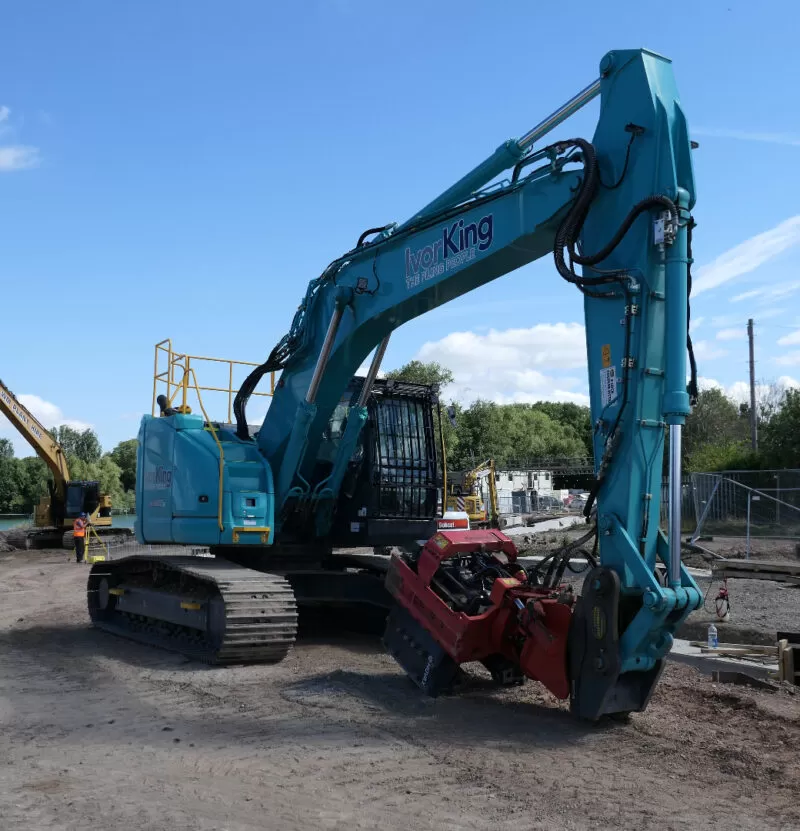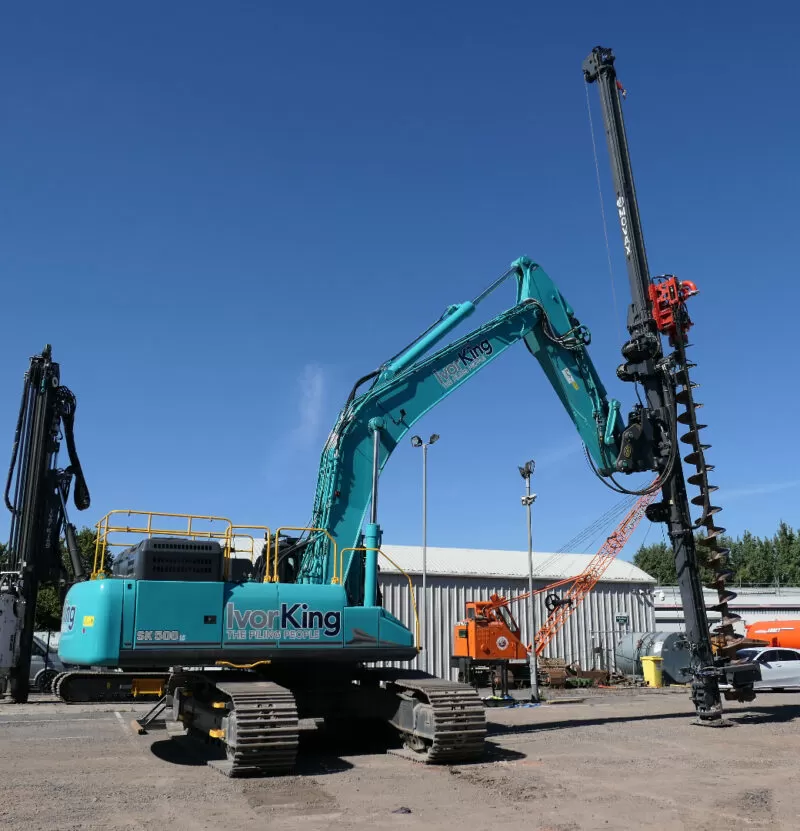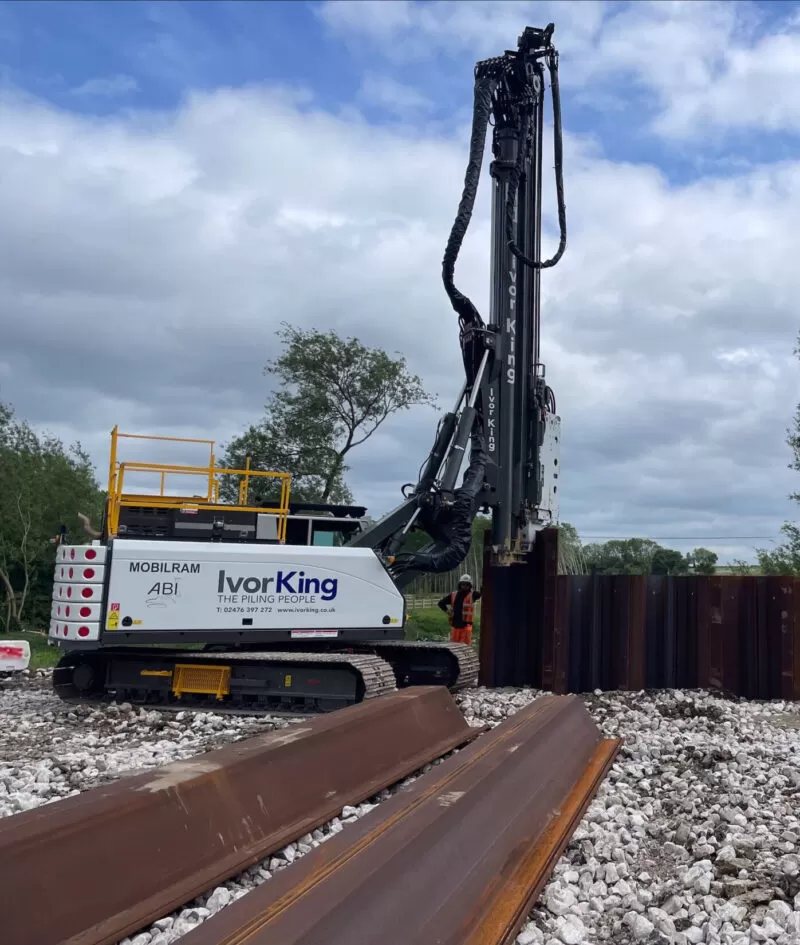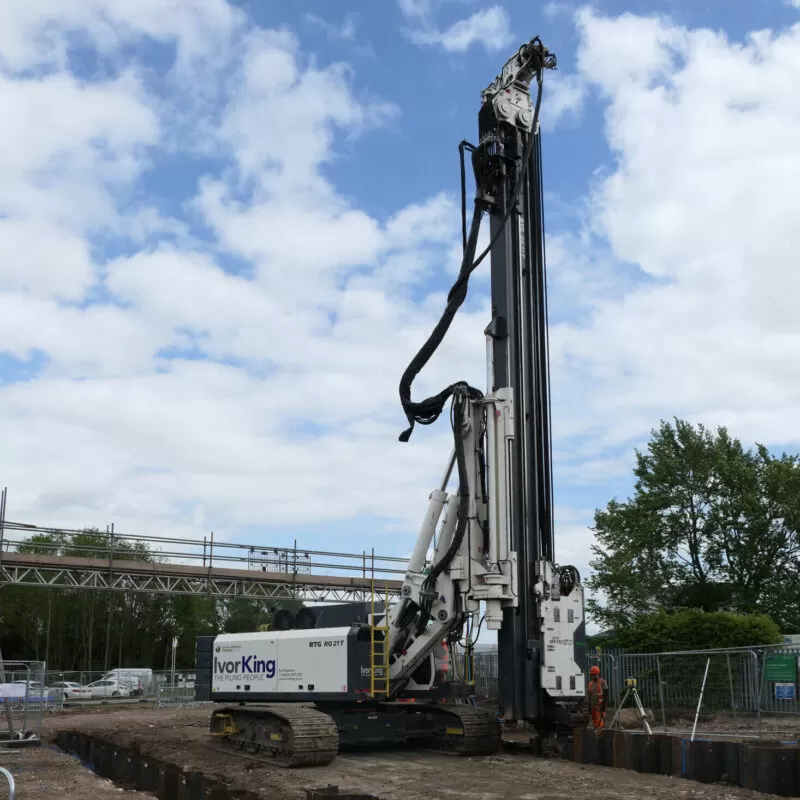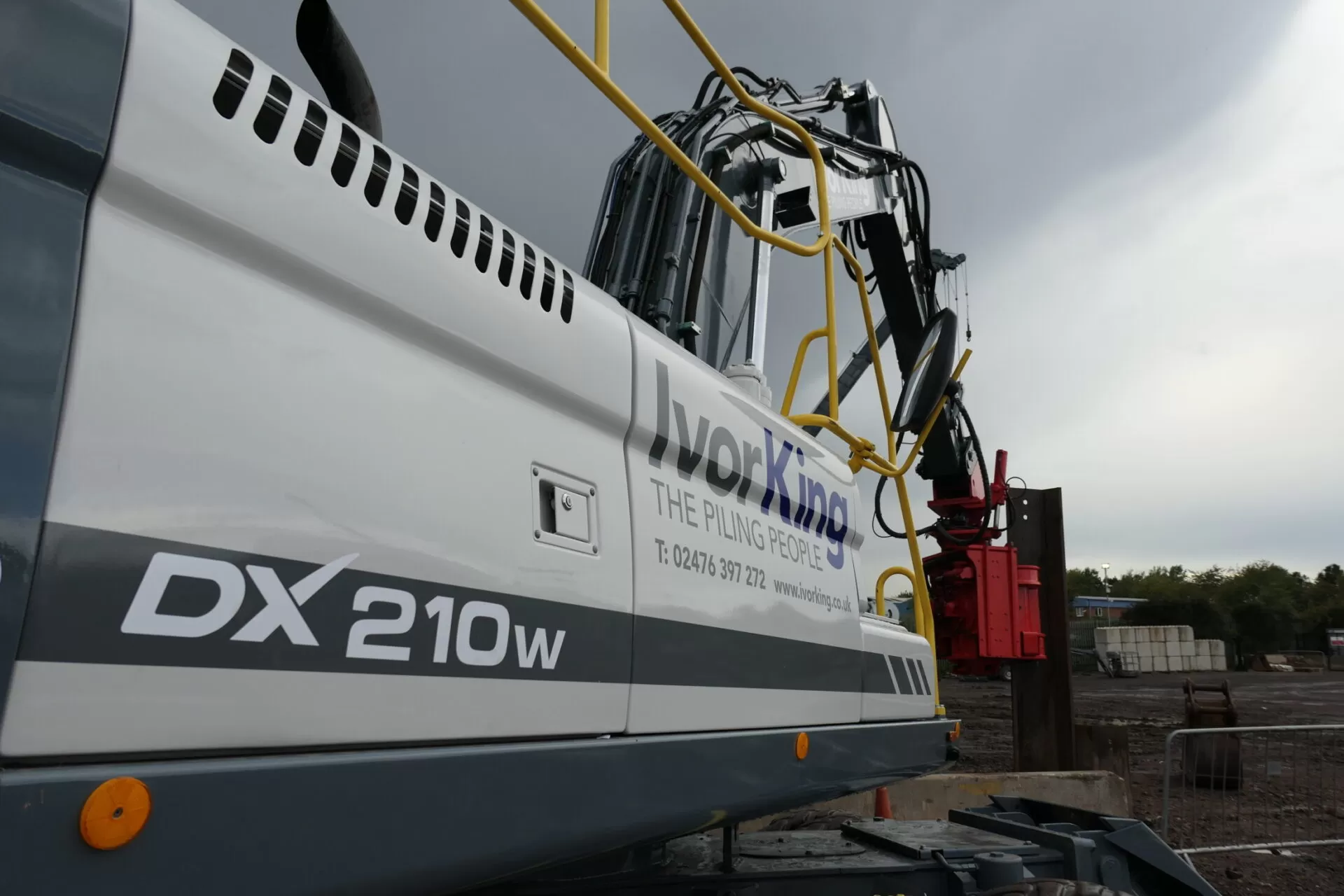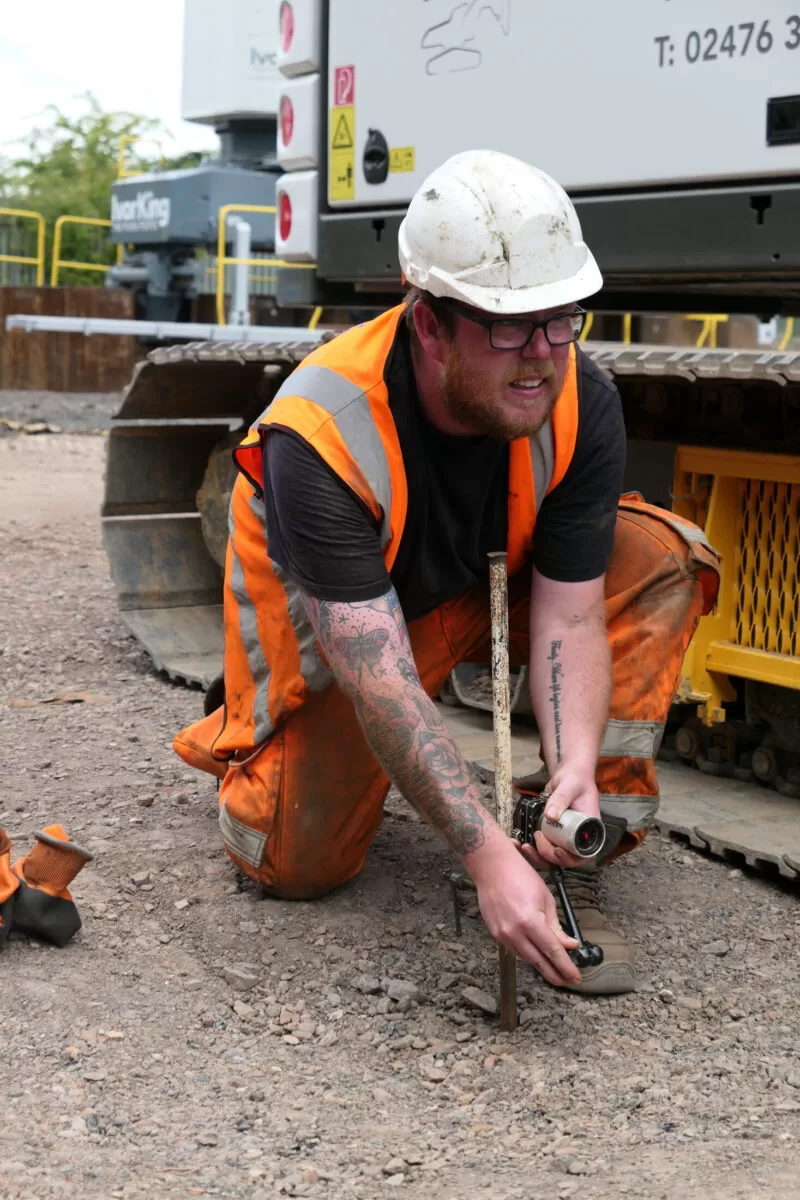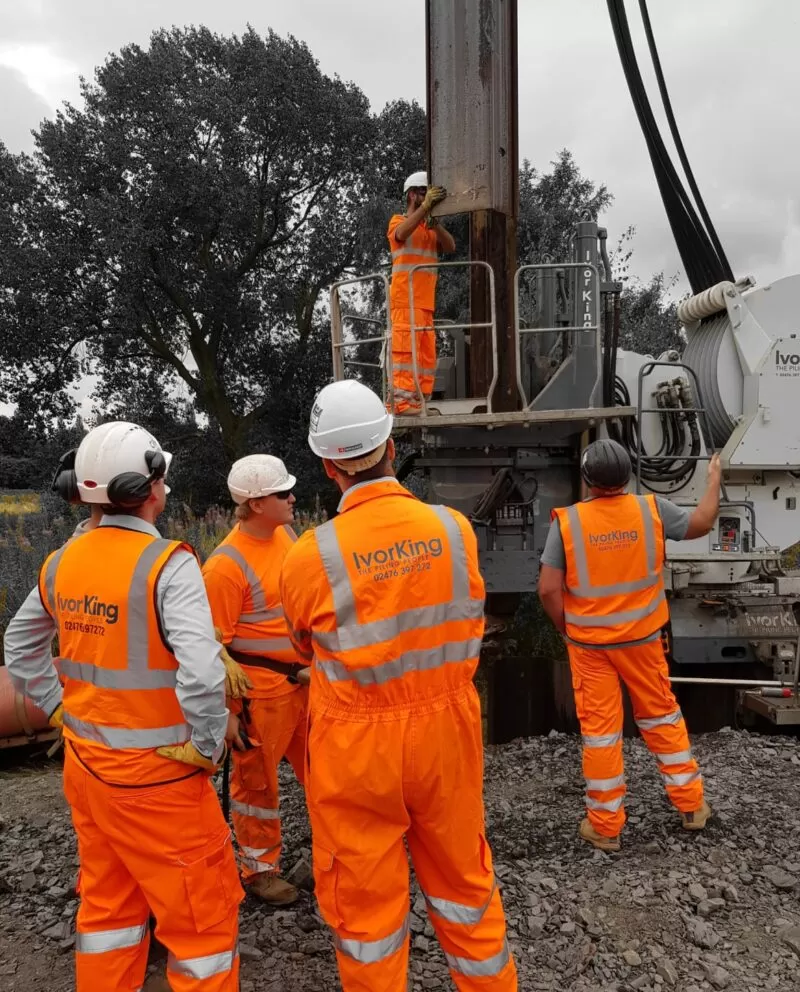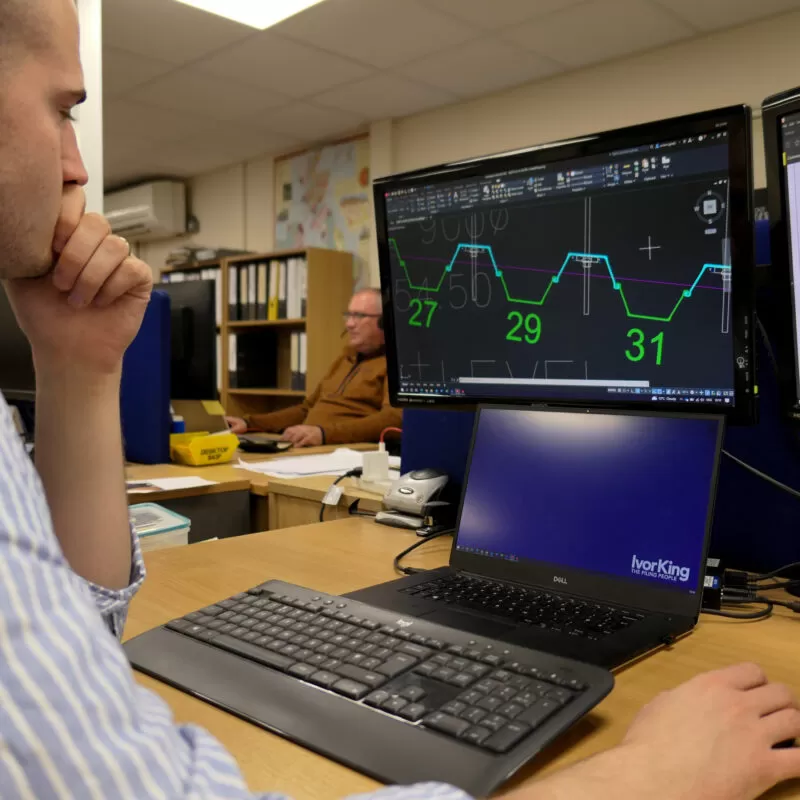Vibratory Driving Solutions
This is a particularly fast and economical method of installation with a wide range of vibratory hammers available for a variety of base machines. Loose to medium dense cohesionless soils provide the best ground for vibro-driving. Whilst vibration and noise occur, this can be kept to a minimum provided the correct choice of hammer is used. When site conditions stipulate that a vibrationless method of installation is required, Ivor King can offer a range of virtually silent, vibration-free installation methods.
Ivor King utilise three main types of vibro-hammers operated in conjunction with three different types of plant:
- Excavators with Movax Vibratory Hammer Attachments
- Telescopic Leader Rigs with Vibratory Hammer Attachments
- Crawler Cranes with Suspended Vibro-Hammers
Ground Conditions and use of Vibratory Hammers
The soils best suited to vibration work are non-cohesive soils, i.e. gravel or sand, provided that the soils are not too dense. In cases where SPT (Standard Penetration Test) N-values of over 50 are present, vibro-driving will be difficult. Pre-augering prior to vibro-driving piles and water jetting whilst vibro-driving piles can be utilised to loosen dense soil. Vibratory hammers operating at higher amplitudes are normally effective in more difficult soils.
Clay soils have a dampening effect and reduce the effectiveness of the energy transferred to the pile. Vibratory driving is therefore difficult where firm or stiff clay soils are encountered. High amplitude hammers are likely to yield the best results in such conditions. Should the vibratory hammer reach a refusal rate of less than 75mm of pile penetration per minute, Impact Driving can be used to progress the piles further (see below).
Our vibration hammers can be operated at various settings to suit different pile and ground conditions and can also be fitted with digital recording devices to help monitor pile installation.
Prolec Height & Slew Restrictor for added built-in safety
For occasions where working in confined spaces, such as under road or rail bridges is unavoidable, we can deploy excavators fitted with the Prolec integrated safety system which physically limits a machine’s movement in terms of both height and slew. Pre-defined safe working zones are entered into the Prolec system which in-turn restricts a machine’s movements should it approach these limits, building in extra safety in such circumstance.
Vibration Monitoring
Where the method of piling installation causes vibration, monitoring of vibration levels to adjacent properties may be necessary, operating within the guidance set out in BS 5228-2:2009 + A1:2014 and BS 7385-2:1993.
Seismic monitoring allows us to keep within any pre-defined vibration limits, which in turn ensures that peak measurements caused by piling activity are not likely to lead to surrounding building damage. Where readings exceed any pre-defined vibration thresholds, alternative pile installation methods may need to be considered.
Using the monitor’s built-in modem, results can be viewed and captured in real time via a remote desktop computer, or downloaded remotely following piling activity. Conversely, results can be reviewed at site directly via the machine’s display and downloaded on to a USB device.
